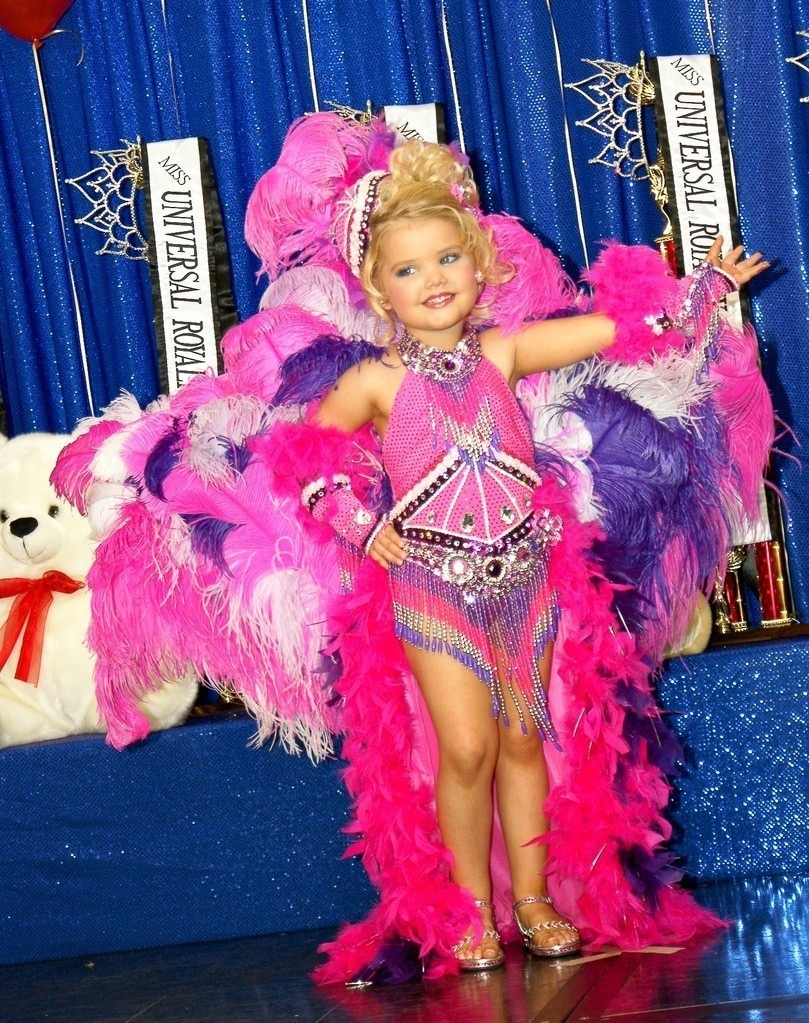This week’s Women’s Center’s discussion, focusing on the reality television show Toddlers and Tiaras, was entitled “Toddlers and Tiaras: Sexualizing Girls and Ageism.”
The show depicts the lives of mothers and girls who participate in child beauty pageants. For the “Glitz” beauty pageants, young girls must wear hair extensions, fake eyelashes, fake teeth, and have fake tans in order to compete.
The discussion began with participants enumerating words they associate with such pageants. These included “pressure,” “abuse,” “stage moms,” “inappropriate outfits,” and many others. The moderators also asked participants to think of everyday childhood activities to contrast with these words. They cited activities such as playing, dressing up, having fun, and being messy.
The moderators then showed a few controversial clips from the show, most notably one of a young girl dressed up as Julia Roberts’ character in the movie Pretty Woman.
They then asked the participants if they thought these practices were typical among young boys and girls. Some students present compared the hyper-feminization and inappropriateness of these pageants with some of the dance routines little girls perform and the outfits they have to wear when taking dance classes.
Yet, participants acknowledged the pageants push this behavior to an extreme. This led some participants to explain they did not necessarily understand how some of the things they had to do when participating in those classes were inappropriate. They agreed this was a problem at pageants, too, as children may believe they participate through their own free will and may not fully understand the consequences of their behavior.
Toddlers and Tiaras is easy to condemn because of how extreme it is, but some people at the discussion questioned how different the parents in the show are from parents trying to pressure their children in other ways. Participants compared the mothers on the show with parents who pressure their children to go to academically rigorous pre-schools or join competitive soccer programs.
The participants then focused on potentially positive aspects of pageants, admitting they can teach poise and empowerment to children. Nevertheless, some argued these are not necessarily essential qualities for a five-year old child to possess and there are other ways to teach children to be self-assured.
The discussion shifted to the prevalence of the “princess” image for little girls and the gender roles perpetuated by popular culture through things such as Disney movies. The participants talked about the strong influence society has on determining a young girl’s taste, despite girls having access to many more examples of strong, independent women than in years past. For example, they compared past and present Disney movies, discussing how the princesses in the new Disney movies show more initiative and do not simply wait to be rescued by a prince.
Finally, the participants talked about the implications of sexualizing girls at such a young age. Indeed, some said, since society implicitly teaches girls they can only be beautiful up to their twenties, this is a way to take full advantage of one’s youth and beauty. However, participants warned of the dangers of portraying little girls in such a way because, even though it may seem harmless to the girls, it may attract unwanted attention and put them in very dangerous positions.
